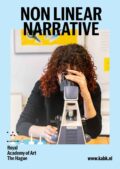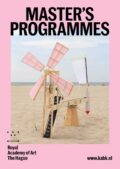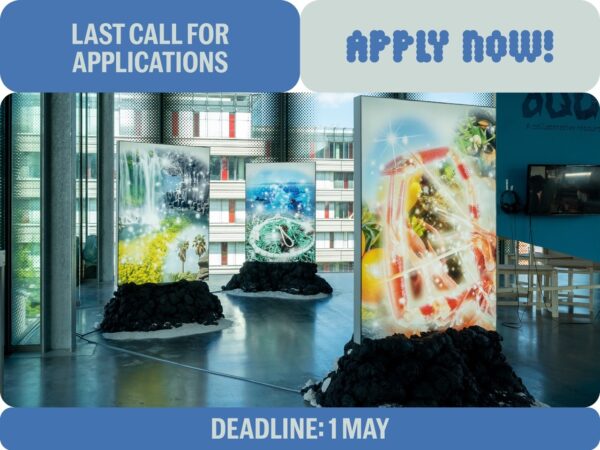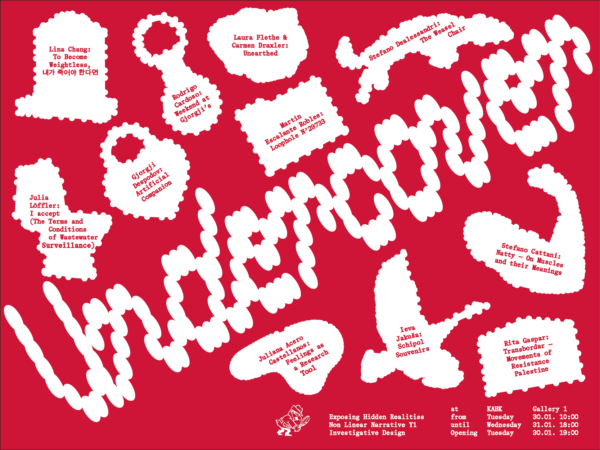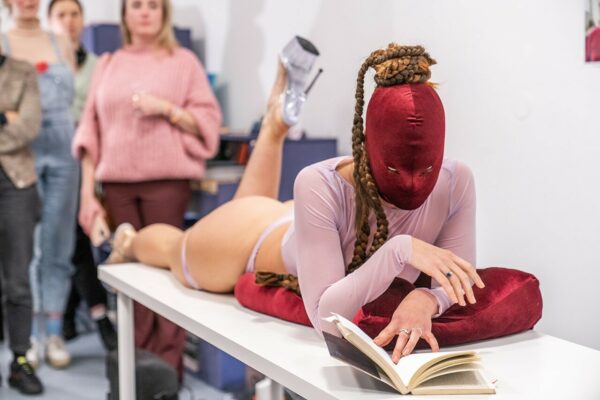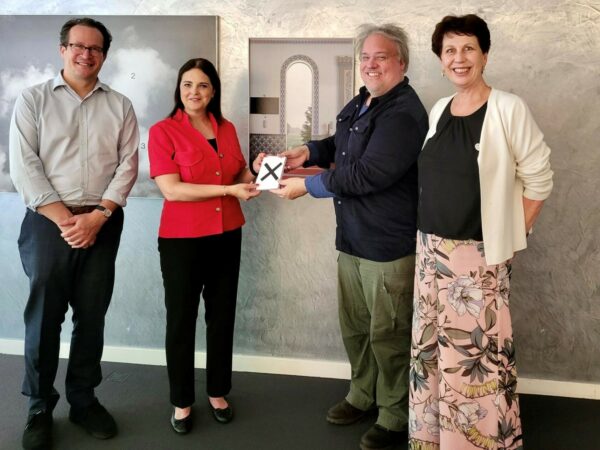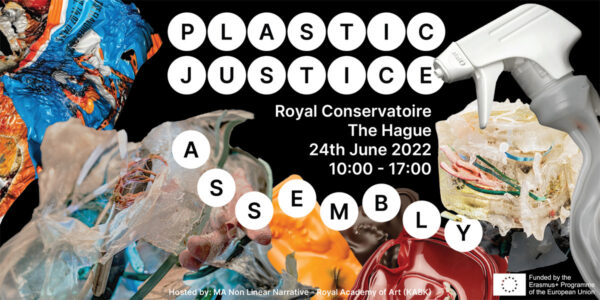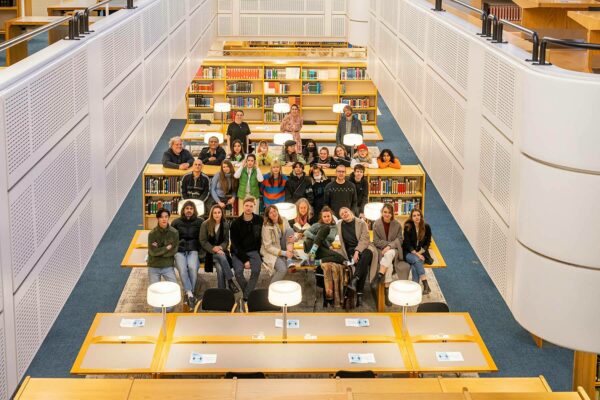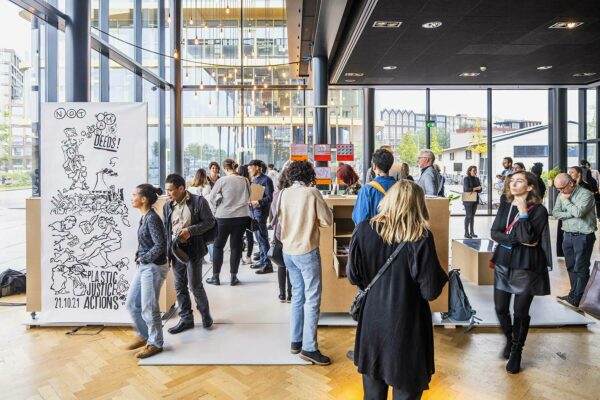Programme structure
In the first year, students have the possibility to indulge themselves in design, technology, philosophy and media theory courses, and learn practical skills in computer programming, film editing, 3D-modeling, AI and virtual reality.
During the second and last year, students' workload is devoted to writing a thesis and to a (public) exhibition of their work.
Key objective of the Master Non Linear Narrative programme is to educate critical thinkers, who master new technologies in order to tell meaningful narratives addressing the world’s social, economic and environmental challenges.
Courses & ECTS credits 2023-2024
The study programme amounts to 120 ECTS and lasts two academic years.
| Courses | Sem 1 | Sem 2 | ||
|---|---|---|---|---|
| Critical Storytelling | 3 | 3 | ||
| Image Language | 3 | 3 | ||
Investigative Field Lab | 3 | - | ||
| Evidence-based Stories | - | 3 | ||
| Information Design | 3 | 3 | ||
| Coding | 6 | - | ||
Post Photography | 5 | - | ||
| Documentary Film | - | 6 | ||
| Material Lab | - | 5 | ||
| Tech Week | 1 | - | ||
| Media Theory | 3 | 3 | ||
Critical Theory & Methods | 3 | 3 | ||
| Thesis Pressure Cooker | - | 1 | ||
| Collective | 0 | 0 | ||
| Total study points per semester | 30 | 30 |
| Courses | Sem 3 | Sem 4 | ||
|---|---|---|---|---|
| Individual Study Project 1 | 9 | - | ||
| Individual Study Project 2 | 9 | - | ||
| NLN Presentation | 1 | 1 | ||
| Professional Practice Skills | 2 | - | ||
| Tech Week | 1 | - | ||
| Thesis | 8 | - | ||
| Final Exam Project | - | 26 | ||
| Graduation Show Preparations | - | 3 | ||
| Total study points per semester | 30 | 30 |
OER 2023-2024
Education and Examination Regulations
You can find information about the regulations and provisions dealing with the organisation of the programme and the assessments and examinations related to it in the Education and Examination Regulations (in Dutch: Onderwijs- en examenregeling; OER)
